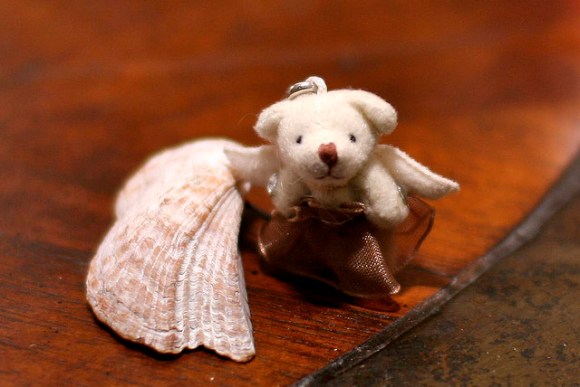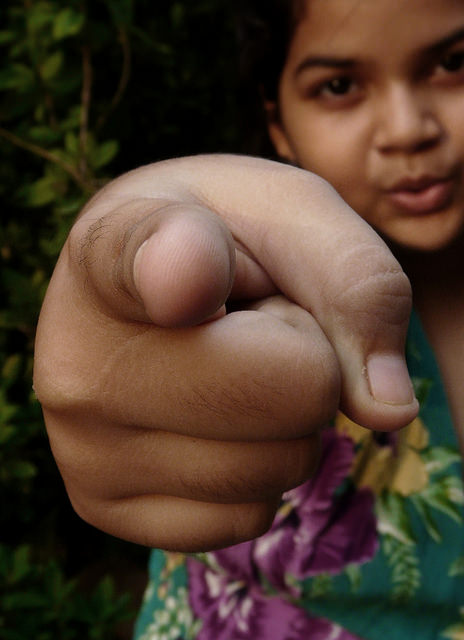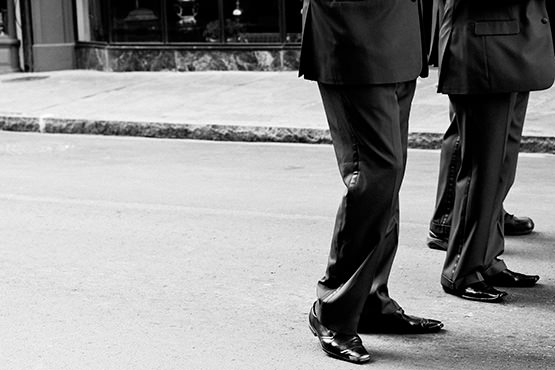
The Japanese are known for their politeness, so it’s only natural that visitors to Japan want to know what to do, or not do, to avoid appearing rude. Check out this list of little behaviors that you won’t find in your guidebook.
I’ve compiled a list of things to think about when visiting Japan based on my own observations living here. None of the violations here will single you out as being rude per se, but if you can avoid these faux pas, you’ll earn the praise of the Japanese for being polite. That’s a pretty high honor in the land of politeness.
Okay, here we go:
1. Don’t ask your host for something unless you really need it.
This may seem obvious at first, but you’d be surprised how often I hear someone at a minshuku (a family-run Japanese-style inn) say to their host: “Do you have some extra batteries (or whatever)? If you don’t, that’s okay, but I’d really like to use my electric shaver.” This request is perfectly okay in your own country, because the assumption is that if the person doesn’t have said object, they’ll say so.
The Japanese, on the other hand, find it very hard to decline requests; on the contrary, they feel obligated to fulfill them! If they don’t have batteries, they’ll either sacrifice the ones from their own TV remote control, or may even go down to the store themselves to buy some for you, which, while admirable, probably isn’t your intention when asking. If it’s something you really need, then by all means go ahead and ask, but if you follow it up with “If you can’t do it, that’s okay,” then you probably don’t really need it anyway and you’re better off not putting your host out.
2. When you have to ask for help…
After 20 years of living in Japan, I’ve hardly ever been asked to do a personal favor for someone. This is because in Japan, you’re expected to not inconvenience others and only ask the help of others when you really need it. But for the times you do need someone’s help, be sure to thank them the Japanese way: with a proper gift! The few favors I have been asked regarded proofreading a colleague’s English abstract for a research paper, and translating an English letter someone received from abroad. Usually, these incidences involved someone knocking on my door while holding a bag containing an expensively wrapped delicacy. In other words, they were ready with the gift before they’d even asked the favor! As a tourist, there are times when you’re going to need help. Maybe someone drives you to the hospital, or goes out of their way to so something. These people should be rewarded properly with a quality gift that shows you care. This is not the time to penny-pinch; give something more than that koala clip you’ve been handing out to people along the way.
3. When asking little favors…
▼ This little bear key chain is cute and appropriate to give in return for little favors.
On the other hand, when someone does a little favor for you (maybe you borrowed a converter at the minshuku to plug in your electronics), that’s when to employ those koala clips, Japanese and American flag lapel pins, Swiss chocolate bars, Dutch clogs key chains, etc. Keep in mind that you can even give food or snacks to people (which can be really fun if you can find something unique or quirky from home to carry with you, such as Swiss cow flavored potato chips or something). I am frequently given cans of ‘Pocari Sweat’ or canned juice when I do incidentals for Japanese people. In this case, it’s the gesture that counts, not how much you’ve spent.
4. Lower your voice. Yes, you!
One of the things you’ll notice when you come to Japan is that the Japanese are, generally speaking, quiet people. While they can be boisterous and loud when in groups (especially when drinking), the average person, when on his or her own, is downright demure. As a general rule, do not speak in a loud voice when having a conversation—regardless of whether the person you’re talking to is Japanese or a fellow foreigner— and don’t raise your voice when you get upset. A good rule to follow is: never talk louder than anyone else in the room, even if you’re angry. A booming voice is embarrassing to Japanese people who generally don’t like to attract attention or have their conversations overheard by those who aren’t a part of them, so be mindful of the other people around you. Pretend you’re in a museum if you have to.
5. Don’t dominate conversations
▼Be mindful that Japanese people are unlikely to jump into a conversation unless given the proper cues, which they’re probably waiting for.
I’ve mentioned being a better listener before, but it bears repeating. It’s easy to do all the talking in a conversation when Japanese people aren’t talking back the way you might expect them to. But usually your Japanese conversation partner just needs a bit more of a break in the conversation to jump in. Foreigners often mistake uncomfortable silences as an impetus to keep on talking! Resist the temptation and wait for the Japanese person to feel comfortable and start talking, or wait for a signal from the person (such as a request for more detail) before continuing. Japanese people will famously wait for you to finish your monologue before saying, “By the way…” and changing the subject, which they’ve been waiting to change for quite some time.
A good rule to follow is to insert questions into your dialogue every now and then. Questions invite the other person into the conversation and can also be used to check for comprehension to make sure the person is understanding your point.
6. Just the facts, please!
Slowing down the pace of your English just a tad (while resisting the urge to drop less important words) will also help when speaking with non-native English speakers because it gives them more time to process information. Good enunciation will also help your listener identify words which can sound completely different depending on the speaker’s accent. Cut the jokes, too. Most second language learners do not have the luxury of being able to understand sarcasm, innuendo, puns, etc. Again, just the facts, please! If you’ve ever watched the American TV show “South Park” you’ve probably noticed (besides its hilarious depictions of Japan) that it takes a while to clue into the fast talking, response-slinging, and slang-slaying used by the characters on the show. Have mercy on your listeners and don’t talk like a South Park character!
7. Level up your wardrobe
If you’re meeting up with Japanese people, dress nicely. it’s amazing how often I see smartly attired Japanese people dining with a foreigner who is wearing jeans and sneakers. It’s disrespectful to your guests as well as the restaurant. In Japan, jeans and sneakers are for musicians and artists.
8. Wear nice shoes
You’ll hardly ever see a Japanese person with shabby shoes. To the contrary, they’ll be clean, polished and probably of high quality. Why? It’s not just because the Japanese walk a lot to get around, but also because in Japan you often have to take your shoes off at the door to establishments (houses, restaurants, clinics, etc) so you don’t want to display worn, smelly footwear. Instead, be the well-heeled! Pity the poor woman (and yes, it is a woman!) who has to handle your shoes at the genkan and turn them around so the toes are pointing outward, so that when you leave, you can slip right into them.
And while we’re at it, during the shoe to slipper exchange, when you step out of your shoes in the genkan, step straight up onto the area where the slippers are waiting so as to avoid touching the dirty floor (where your shoes are) in your socks!
9. Barefoot, bare-chested, and bare-butted!
Despite the several naked festivals in Japan, flesh-flashing antics such as skinny dipping in the sea, even at night when you think no one is looking, is a no-no. Sorry, butt…
Men walking around bare-chested outside is considered uncouth too. I once noticed that in Bali, many of the Japanese young males walked around the streets (and even into the open-air restaurants), without shirts on. When I asked one of these guys about this peculiarity, he said they pad around shirtless, “Because we can’t do this in Japan!”
Going barefoot outside (naked feet) will also raise eyebrows as it violates the whole idea of keeping dirt out of the house or building since you’ll just track it back inside on the soles of your feet. If you don’t want to go to the trouble to put your shoes back on when you’re only going outside for a moment, then use the outdoor slippers provided for this purpose.
10. Hugs are awkward
▼ Well, okay, but only if they’re free!
No one is saying you can’t give a Japanese person a hug if you feel touched by something they did for you, but keep in mind this well-intended gesture will most likely make the person feel very uncomfortable. Yes, despite the limited success of the free hug campaign in Japan and the world, this level of physical contact still isn’t common here. My rule of thumb on this (because we just have to hug, don’t we?!) is if the person has lived abroad before, then give them a hug. If they haven’t, shake their hand instead. I’ve never met a Japanese person who didn’t get an absolute thrill out of a hand-shake, so extend your hand when you want to thank a Japanese person or say good-bye.
I hope some of these tips will help you on your way to becoming a well-informed, Japanese-level-polite tourist to Japan! If you have further suggestions based on your own experiences, please let us know in the comments section below. For that, I give you a hearty handshake!
Now read:
Just when you thought you knew it all – 17 life-changing lessons learned in Japan











 10 things Japan gets awesomely right
10 things Japan gets awesomely right 8 things you should never say to a Japanese person
8 things you should never say to a Japanese person Confessions of a gaijin: 12 things we do that we’d never admit to Japanese people
Confessions of a gaijin: 12 things we do that we’d never admit to Japanese people 10 simple ways to ruin a Japanese wife’s day
10 simple ways to ruin a Japanese wife’s day 5 cultural tips for taking photos in Japan
5 cultural tips for taking photos in Japan Starbucks Japan releases first-ever Hinamatsuri Girls’ Day Frappuccino
Starbucks Japan releases first-ever Hinamatsuri Girls’ Day Frappuccino Japan Extreme Budget Travel! A trip from Tokyo to Izumo for just 30,000 yen [Part 1]
Japan Extreme Budget Travel! A trip from Tokyo to Izumo for just 30,000 yen [Part 1] 7-Eleven Japan’s sakura sweets season is underway right now!
7-Eleven Japan’s sakura sweets season is underway right now! Elephant nose ice cream: The treat with a trunk
Elephant nose ice cream: The treat with a trunk Naruto and Converse team up for new line of shinobi sneakers[Photos]
Naruto and Converse team up for new line of shinobi sneakers[Photos] Yakuzen ramen restaurant in Tokyo is very different to a yakuza ramen restaurant
Yakuzen ramen restaurant in Tokyo is very different to a yakuza ramen restaurant Japan Extreme Budget Travel! A trip from Tokyo to Izumo for just 30,000 yen [Part 2]
Japan Extreme Budget Travel! A trip from Tokyo to Izumo for just 30,000 yen [Part 2] Tribute to Nausicaä: Ohm-rice of the Valley of the Wind
Tribute to Nausicaä: Ohm-rice of the Valley of the Wind Ghibli fans show their devotion by making live-action prequel to Princess Mononoke【Video】
Ghibli fans show their devotion by making live-action prequel to Princess Mononoke【Video】 Japanese Cabinet to officially announce new romanization spelling recommendation next week
Japanese Cabinet to officially announce new romanization spelling recommendation next week The 10 most annoying things foreign tourists do on Japanese trains, according to locals
The 10 most annoying things foreign tourists do on Japanese trains, according to locals Highest Starbucks in Japan set to open this spring in the Tokyo sky
Highest Starbucks in Japan set to open this spring in the Tokyo sky Tokyo Skytree turns pink for the cherry blossom season
Tokyo Skytree turns pink for the cherry blossom season Starbucks Japan releases new sakura goods and drinkware for cherry blossom season 2026
Starbucks Japan releases new sakura goods and drinkware for cherry blossom season 2026 Japan’s new “Cunte” contact lenses aren’t pronounced like you’re probably thinking they are
Japan’s new “Cunte” contact lenses aren’t pronounced like you’re probably thinking they are Shibuya Station’s Hachiko Gate and Yamanote Line stairway locations change next month
Shibuya Station’s Hachiko Gate and Yamanote Line stairway locations change next month Starbucks Japan adds new sakura Frappuccino and cherry blossom drinks to the menu
Starbucks Japan adds new sakura Frappuccino and cherry blossom drinks to the menu Japan just had its first same-month foreign tourist decrease in four years
Japan just had its first same-month foreign tourist decrease in four years Burning through cash just to throw things away tops list of headaches when moving house in Japan
Burning through cash just to throw things away tops list of headaches when moving house in Japan Japan’s newest Shinkansen has no seats…or passengers [Video]
Japan’s newest Shinkansen has no seats…or passengers [Video] Foreigners accounting for over 80 percent of off-course skiers needing rescue in Japan’s Hokkaido
Foreigners accounting for over 80 percent of off-course skiers needing rescue in Japan’s Hokkaido Super-salty pizza sends six kids to the hospital in Japan, linguistics blamed
Super-salty pizza sends six kids to the hospital in Japan, linguistics blamed Starbucks Japan unveils new sakura Frappuccino for cherry blossom season 2026
Starbucks Japan unveils new sakura Frappuccino for cherry blossom season 2026 Foreign tourists in Japan will get free Shinkansen tickets to promote regional tourism
Foreign tourists in Japan will get free Shinkansen tickets to promote regional tourism Take a trip to Japan’s Dododo Land, the most irritating place on Earth
Take a trip to Japan’s Dododo Land, the most irritating place on Earth Is China’s don’t-go-to-Japan warning affecting the lines at a popular Tokyo gyukatsu restaurant?
Is China’s don’t-go-to-Japan warning affecting the lines at a popular Tokyo gyukatsu restaurant? Survey asks foreign tourists what bothered them in Japan, more than half gave same answer
Survey asks foreign tourists what bothered them in Japan, more than half gave same answer Japan’s human washing machines will go on sale to general public, demos to be held in Tokyo
Japan’s human washing machines will go on sale to general public, demos to be held in Tokyo Starbucks Japan releases new drinkware and goods for Valentine’s Day
Starbucks Japan releases new drinkware and goods for Valentine’s Day We deeply regret going into this tunnel on our walk in the mountains of Japan
We deeply regret going into this tunnel on our walk in the mountains of Japan Studio Ghibli releases Kodama forest spirits from Princess Mononoke to light up your home
Studio Ghibli releases Kodama forest spirits from Princess Mononoke to light up your home Major Japanese hotel chain says reservations via overseas booking sites may not be valid
Major Japanese hotel chain says reservations via overseas booking sites may not be valid Put sesame oil in your coffee? Japanese maker says it’s the best way to start your day【Taste test】
Put sesame oil in your coffee? Japanese maker says it’s the best way to start your day【Taste test】 No more using real katana for tourism activities, Japan’s National Police Agency says
No more using real katana for tourism activities, Japan’s National Police Agency says Valentino sparks outrage with insincere apology for disrespecting Japanese culture in photo shoot
Valentino sparks outrage with insincere apology for disrespecting Japanese culture in photo shoot 4 freezer tips for beating the summer stink from everything from sweaty shoes to rotting garbage
4 freezer tips for beating the summer stink from everything from sweaty shoes to rotting garbage Step into Japanese culture with Converse’s new Japan-exclusive shoes featuring gods, sushi style
Step into Japanese culture with Converse’s new Japan-exclusive shoes featuring gods, sushi style Tokyo’s cheapest shoe chain and 10 pairs of kicks that cost less than 10 bucks each
Tokyo’s cheapest shoe chain and 10 pairs of kicks that cost less than 10 bucks each New shoes from Converse will have both kids and adults showing off their love of Pokémon in style
New shoes from Converse will have both kids and adults showing off their love of Pokémon in style Ultraman has some new kicks for his 50th anniversary thanks to Converse All Star
Ultraman has some new kicks for his 50th anniversary thanks to Converse All Star Reebok teams up with fashion brand Yoshiokubo for traditional-culture-inspired sneakers
Reebok teams up with fashion brand Yoshiokubo for traditional-culture-inspired sneakers Sakura shoes! Converse’s new Japan-exclusive model is made with actual cherry blossoms
Sakura shoes! Converse’s new Japan-exclusive model is made with actual cherry blossoms Chinese manners-vigilante throws away shoes of sleeping passenger at airport
Chinese manners-vigilante throws away shoes of sleeping passenger at airport Own a pair of secret camera shoes? The police should be by shortly for a visit
Own a pair of secret camera shoes? The police should be by shortly for a visit The top 10 worst men’s fashion items, as rated by Japanese women
The top 10 worst men’s fashion items, as rated by Japanese women Converse teaming up with Cup Noodle for three pairs of shoes inspired by iconic packaging
Converse teaming up with Cup Noodle for three pairs of shoes inspired by iconic packaging Converse All-Stars team up with two all-stars of Japanese art for Wave, Skull ukiyo-e shoes【Pics】
Converse All-Stars team up with two all-stars of Japanese art for Wave, Skull ukiyo-e shoes【Pics】 These amazing Furoshiki Shoes from Vibram are designed to literally wrap around your feet!
These amazing Furoshiki Shoes from Vibram are designed to literally wrap around your feet! Top 10 things even Japanese people think they’re too obsessive about
Top 10 things even Japanese people think they’re too obsessive about Nike releases izakaya sneakers in Japan【Photos】
Nike releases izakaya sneakers in Japan【Photos】 Ryokan etiquette: What not to do when staying at a traditional Japanese inn
Ryokan etiquette: What not to do when staying at a traditional Japanese inn